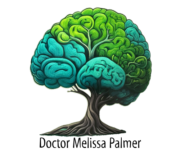Discover proven techniques to boost your memory at any age! As we enter the darker months of the year, my Autumn 2024 guide offers expert tips, exercises, and lifestyle changes to enhance and improve your cognitive function and retention.
Unlock your brain’s potential today! Understanding Memory: The Basics
Introduction: Did you know that the average person forgets about 40% of any new information they take in within the first 24 hours? My goodness – that is a concerning statistic. But don’t worry, I’ve got good news for you. Improving your memory isn’t just possible – it’s easier than you might think! Our brains have neuroplasticity – so we can take action to improve our brains. Whether you’re a student cramming for exams, a professional juggling multiple projects, or a retiree looking to stay sharp, this comprehensive guide is has all the tips and techniques for you to get a better memory for the end of 2024 and beyond. Over the next few days we are going to dive into the fascinating & exciting world of neuroplasticity, memory enhancement and unlock the secrets to a sharper mind! I will be releasing this over a number of parts to give you time to read and digest the information.
Understanding Memory: The Basics
• Definition of memory and its importance in daily life
A simple definition of memory is that it is our brains’ ability to remember, store and recall fact and experiences. Our day-to-day lives would come to a grinding halt without our memories. We remember the tasks we have to do, the route to school, college or work, how to bake a cake or the facts we need for that important test or presentation. Memory is vital – without it we would be completely lost.
• Different types of memory (short-term, long-term, working memory)
Short-term memory
Short-term memory is a part of our memory that stores information passively and very briefly. The information stored by our short-term memory will either be forgotten or the working memory will be activated
Working memory
Working memory is an active part of our memory. WM is the part of our memory that allows us to take in new information from our surroundings by hearing, seeing, reading, and understanding where we are in relation to our environment. The WM takes this new information processes it (using executive function) and links it to information in the long-term memory. This makes new memories.
Long-term memory
Long-term memory is the part of our memory that stores (and hence allows us to recall) information and experiences.
• How the brain forms and retrieves memories
The working memory is important in forming and retrieving memories. When we take in new information from our surroundings the working memory processes this information. The working memory does this by linking the new information to facts or experiences from our long-term memory. This makes new memories.
New memories occur in the physcial brain as forming new connections or reorganising the connections between neurones in the brain. These form neural pathways. The information can then be retrieved from our long-term memory using a cue. This is remembering.
• Common misconceptions about memory
The most common misconceptions I think people have about their memory is that it is fixed and cannot be improved. In my classroom and in my day-to-day life I have heard the words “I have an awful memory” being spoken by hundreds of individuals (maybe even thousands) over the last two decades. Not true.
You can change how well your memory works and it does not have a fixed capacity (you cannot fill your memory up!). It is called neuroplasicity. Our brain changes everytime we do anything. So, if we work on improving our memory – we will see improvements in our memory.
Students, trainee teachers and others often say to me – you need to have photographic (visual memory) to have a good memory. This is simply not true. We are all different and take in a process information from different senses at different speeds. We can all have amazing memories with some practice.
